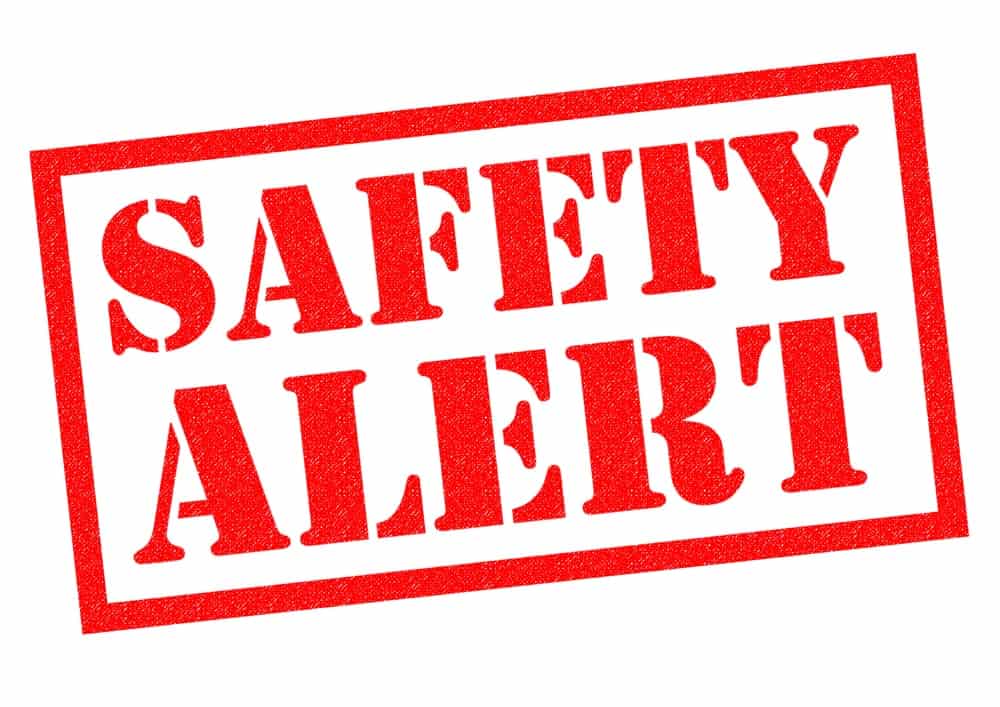“This post contains affiliate links, and I will be compensated if you make a purchase after clicking on my links.”
The U.S. Food and Drug Administration is cautioning pet owners not to feed one lot of Hare Today Gone Tomorrow Ground Chicken/Bones/Organs after the product tested positive for Salmonella and Listeria monocytogenes.

The U.S. Food and Drug Administration is cautioning pet owners not to feed Hare Today Gone Tomorrow Ground Chicken/Bones/Organs, lot 12.04.2018, after a sample of the product collected by the FDA tested positive for Salmonella and Listeria monocytogenes (L. mono). The product is available in four sizes and varieties, all with the processing date of 12.04.2018 on the back of the bag:
- Ground Chicken/Bones/Organs, 1lb, Fine Ground
- Ground Chicken/Bones/Organs, 2lb, Fine Ground
- Ground Chicken/Bones/Organs, 3lb, Coarse Ground
- Ground Chicken/Bones/Organs, 5lb, Fine Ground
The FDA collected this sample while following up on a consumer complaint in which a kitten became sick with Salmonella after eating the recalled product. The specific lot of Hare Today Gone Tomorrow Ground Chicken/Bones/Organs that the sick kitten ate was not available for testing. The FDA collected samples from lot 12.04.2018, which tested positive for both Salmonellaand L. mono. Although the Salmonella isolated from the feces of the sick kitten did not match the strain found in the product sample, Federal law requires that all pet food not be contaminated with pathogens, including Salmonella and L. mono, because of the potential impact on human and animal health.
The FDA is issuing this alert because Hare Today Gone Tomorrow Ground Chicken/Bones/Organs, lot 12.04.2018, represents a serious threat to human and animal health and is adulterated under the Federal Food, Drug, and Cosmetic Act because it contains Salmonella and L. mono. The FDA continues to work with Hare Today Gone Tomorrow on recalling its Ground Chicken/Bones/Organs, lot 12.04.2018.
If you have Hare Today Gone Tomorrow Ground Chicken/Bones/Organs, lot 12.04.2018, stop feeding it to your pets and throw it away in a secure container where other animals, including wildlife, cannot access it. Consumers who have had this product in their homes should clean refrigerators/freezers where the product was stored and clean and disinfect all bowls, utensils, food prep surfaces, pet bedding, toys, floors, and any other surfaces that the food or pet may have had contact with. Clean up the pet’s feces in yards or parks where people or other animals may become exposed.
Salmonella is a bacterium that can cause illness and death in humans and animals, especially those who are very young, very old, or have weak immune systems. According to the Centers for Disease Control and Prevention (CDC), people infected with Salmonella can develop diarrhea, fever and abdominal cramps. Most people recover without treatment, but in some people, the diarrhea may be so severe that they need to be hospitalized. In these patients, the Salmonella infection may spread from the intestines to the blood stream and then to other body sites unless the person is treated promptly with antibiotics. Consult your health care provider if you have symptoms of Salmonella infection.
Pets do not always display symptoms when infected with Salmonella, but signs can include vomiting, diarrhea (which may be bloody), fever, loss of appetite and/or decreased activity level. If your pet has these symptoms, consult a veterinarian promptly. You should also be aware that infected pets can shed the bacteria in their feces without showing signs of being sick.
According to CDC, L. mono infection, or listeriosis, can cause a variety of symptoms, depending on the person and the part of the body affected. Pregnant women typically experience only fever and other flu-like symptoms, such as fatigue and muscle aches. However, infections during pregnancy can lead to miscarriage, stillbirth, premature delivery, or life-threatening infection of the newborn. In people other than pregnant women, symptoms can include headache, stiff neck, confusion, loss of balance, and convulsions in addition to fever and muscle aches.
L. mono infections are uncommon in pets, but they are possible. Symptoms may include mild to severe diarrhea; anorexia; fever; nervous, muscular and respiratory signs; abortion; depression; shock; and death. Pets do not need to display symptoms to be able to pass L. mono on to their human companions. Once L. mono gets established in the pet’s gastrointestinal tract, the animal can shed the bacteria when it has a bowel movement, and the contamination may continue to spread. If your pet has these symptoms, consult a veterinarian promptly.














